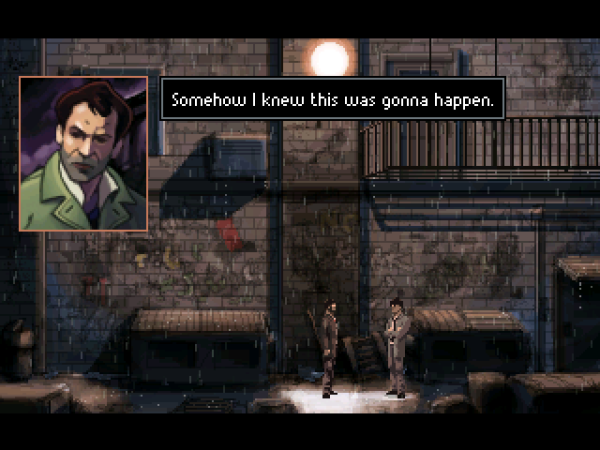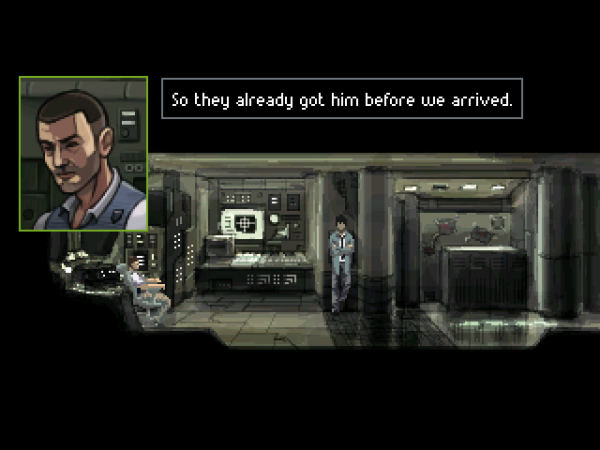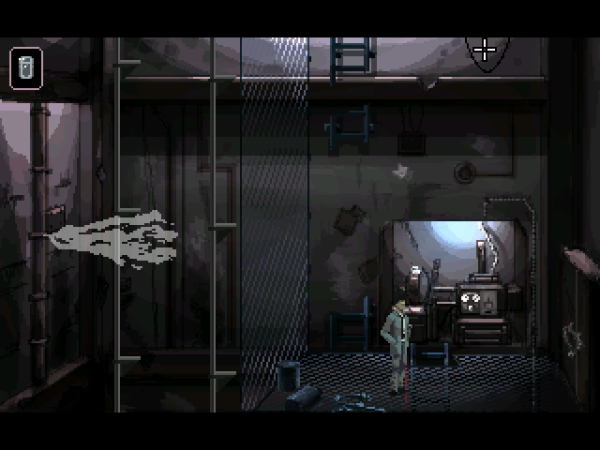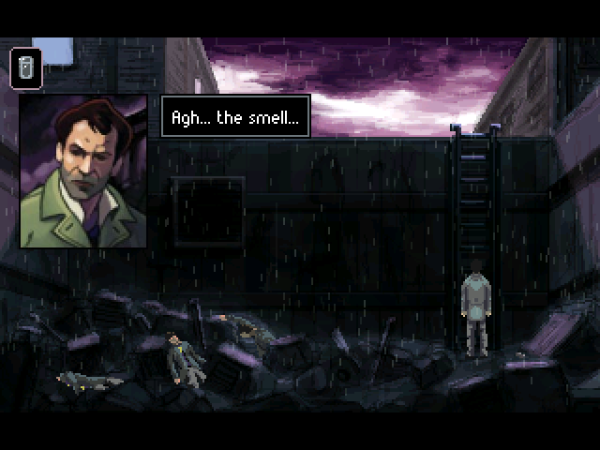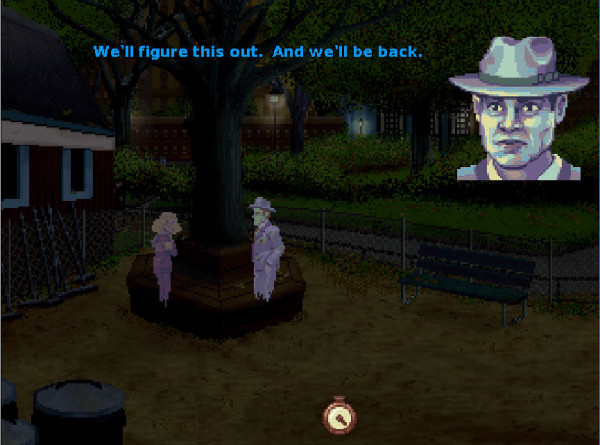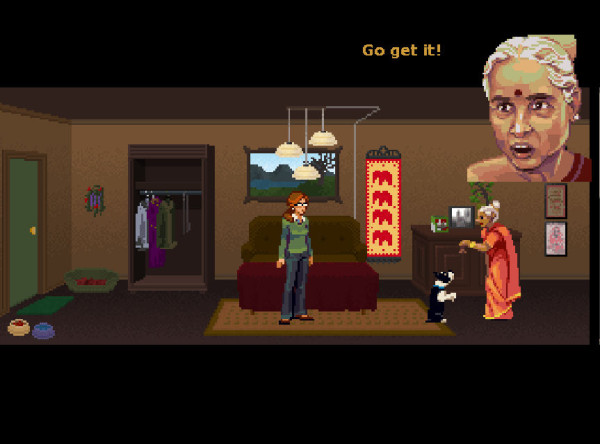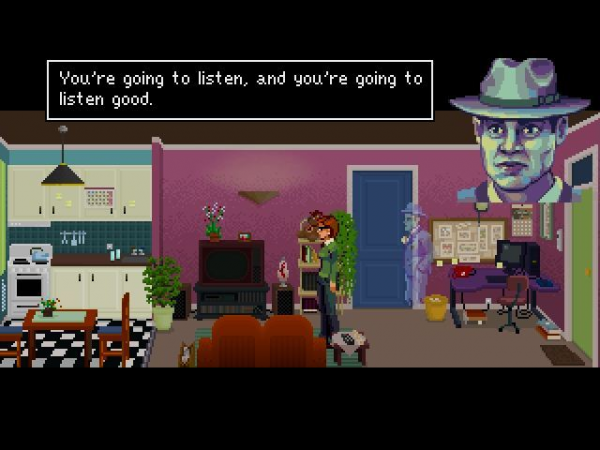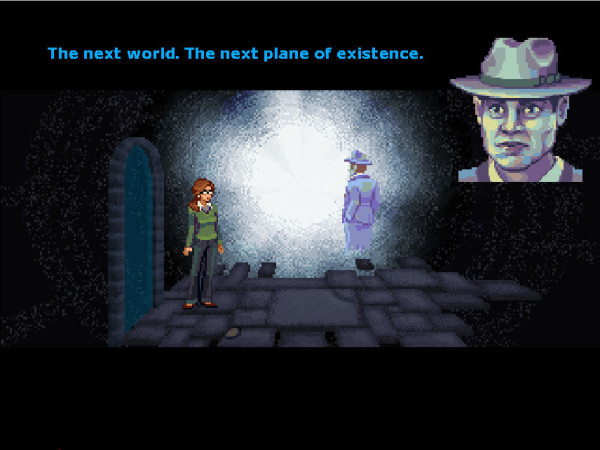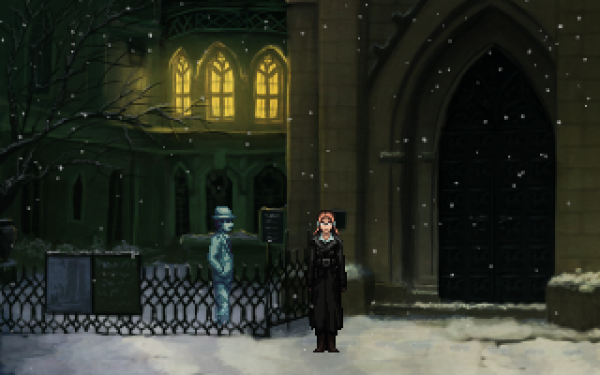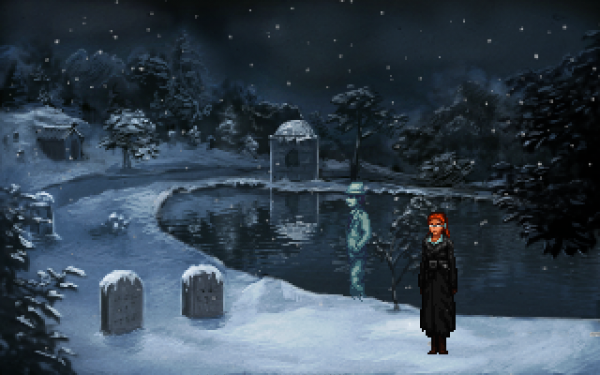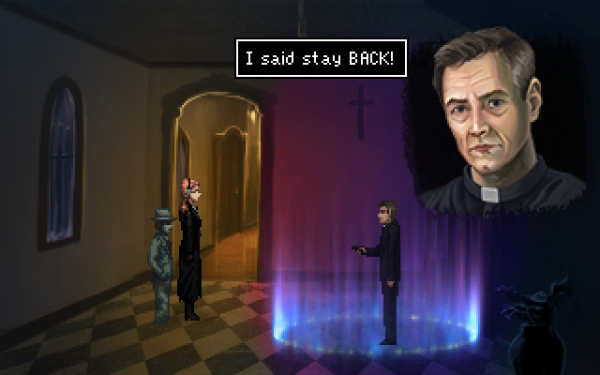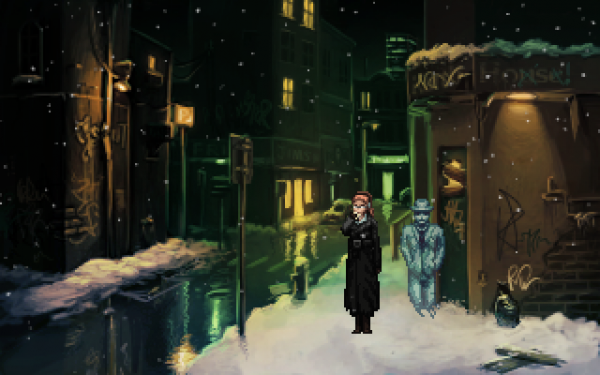Female characters, marketing, and consistency of design
22 January 2015Hi all! Dave here back with another edition of blog. Today I’m going to talk about something that’s not terribly current, but should always be relevant.
Last summer, Ubisoft caused a bit of a kerfuffle when they announced that there wouldn’t be a female playable character in Assassin’s Creed: Unity’s co-op mode. Their reasons? It was too much work and it wasn’t worth it. This led to many great debates and discussions about female representations in video games, none of which I will get into here. I know this is very old news, but please bear with me. Suffice to say, I have been asked several times about my position and opinion on the whole “female characters in games” thing. So after hemming and hawing about it for awhile, I have decided to finally address this topic.
First of all, why is my opinion so important? It probably has to do with Blackwell, our flagship series. As you probably know, the protagonist of Blackwell is Rosa Blackwell, who is – *gasp* – a woman. Going by what the AAA industry would have us believe, this should have killed the series before it even began.
In all honesty, I did not set out to create a female character. I just wanted to create a character. I set out to create a quintessential New York type of person – intellectual, neurotic, perhaps a bit aimless – and that’s what I did. I created Rosa Blackwell, paired her up with Joey, and The Blackwell Legacy was the result.
This game launched in 2006. I won’t say that the original game was a huge seller, but it was reviewed nicely and sold well enough to pay all my bills and keep me in business. There were five games in the series (the last of which was released in April of this year), and each installment sold better and was reviewed better then the last, despite having a woman (a sensibly-dressed woman no less) on the cover. So… yeah. Way to show those AAA marketing people, eh? They obviously don’t know what they are talking about, right? Who says you need a male protagonist in order to sell?
Let’s shift gears a bit. In 2011 we took a break from writing our own stuff and published a game called Gemini Rue. You might have heard of it. It was the biggest seller in the history of our company. It was the first game of ours to be featured at the IGF. It was the first game of ours that caught the attention of major “hardcore” sites like Kotaku and Giant Bomb. It was the first game of ours that really put us on the map. It was the first game of ours to break us out of the adventure gamer niche and into the mainstream.
Oh, and it was also the first game of ours to feature a serious-looking white male as the protagonist. One who is unshaven, speaks in a growly gravelly voice, carries a gun, and is several hundred shades of cynical and grim. So… yeah. Basically the epitome of the AAA mass-marketable character.
So what did this teach me? Were all those AAA marketing people right? Was I shooting myself in the foot by making not only a game starring a woman, but a whole game SERIES? Okay, fine. Blackwell was selling fine – flourishing, in fact! – but maybe they would be selling exponentially better if the games starred a man instead? I mean, maybe those big companies knew what they were talking about. They have bigger resources then me. They have whole teams dedicated to learning this stuff. If they spent all that money, sorted through all that data, and came to the conclusion “male characters sell better,” who am I to argue?
I admit this caused a bit of an existential crisis for awhile. I was in the middle of working on Blackwell Deception, and I was terrified. Did I make a huge mistake back in 2006 when I started this series? I had come this far, and I was beginning to doubt myself. It would have been SO EASY to leap to the obvious conclusion (that male characters sell better) and leave it at that, but I wanted to find out for myself.
So I went to the fans directly and asked the obvious question: “So why did you choose to play Gemini Rue instead of Blackwell?”
The responses were… interesting to say the least.
- I just love cyberpunk!
- I don’t want to commit to an entire series. I just want one game.
- I played the demo of the first Blackwell and I didn’t like it much.
- Ghost stories don’t interest me so much.
- Gemini Rue just looked more my thing.
There were many more responses then this, but they were all various offshoots of the above. And only a negligible few said anything about the characters. Barely 1%. Hardly anyone cared that Azriel was a “badass”, and hardly anyone cared that Rosa was a woman. That didn’t seem to be the issue. At least, not enough to make a significant difference.
It was never about the gender of the protagonist. It was about the game.
On the one hand, you’ve got Gemini Rue. Here are some screenshots that were used heavily in the marketing:
You look at those, and you know what you’re getting. It’s a dystopian future. It’s raining. There are spaceships. There are guys in trenchcoats. You know it. You get it. You might think of Blade Runner or Cowboy Bebop when you look at those screenshots. Those things are very popular. There’s a very good chance you like them too, so you are willing to take a chance on liking this.
Now, for comparison, let’s look at the first Blackwell game:
So there’s a redhead lady. And a ghost. You might think of TV shows like Medium or Dead Like Me. Popular enough in their way, but very niche. There they are in a living room. And some kind of park? Oh, and you get to feed a dog? Is that what you do in this game? The locations are… well, kind ordinary. Nothing interesting is happening in them. There’s one shot where they are in some kind of otherworldly place that could be kinda cool, but it’s so out of place that it becomes an exception rather than the rule. You’ll probably give this game a glance and move onto something else. Maybe you’ll read a review of the game later and it is positive, so maybe you’ll give it a try. That is, if you remember.
I am being my own worst critic here. But the truth of the matter is that a game like Gemini Rue totally sold itself. It was EASY to sell that game, because it compressed well. You got the “message” of what it was about very quickly. Blackwell was… less so. I had a very concrete idea of what Blackwell was – it was a dark urban fantasy! – but my inexperience as a designer and a marketer prevented me from really getting that across. As a result, nobody knew what Blackwell was.
It took me several years before I figured this out. And it is no coincidence that Blackwell Epiphany (the latest and last game of the series) was designed from the ground up to make the “message” of the game crystal clear:
So you’ve got snow. Not just snow. COLD. We wanted you to feel it when looking at it. You’ve got urban environments and decay. An otherworldly atmosphere pervades over everything. The magical glowy effect on the lower left? It doesn’t look out of place because the whole game has a consistent magical feeling. This game might not remind you of anything specific, but you take one look at these screenshots and you know exactly what you are getting: a dark urban fantasy, which is exactly what Blackwell is.
The message was clear. And was understood. And sure enough, the sales reflect that. Blackwell Epiphany’s one month sales figures were higher then all the other Blackwell’s one month sales figures put together.
So what’s my point? Gender has nothing to do with a game’s sales performance. It has everything to do with how a game is designed, presented and (yes) marketed. Turning Rosa into Ray would not have helped Blackwell magically sell better, but digging down and making a better designed and consistent GAME? Yes. That’s what matters.
In any case, I’d love to hear if my thoughts echo your experiences when it came to buying our stuff. Please let us know in the comments!
-Dave

